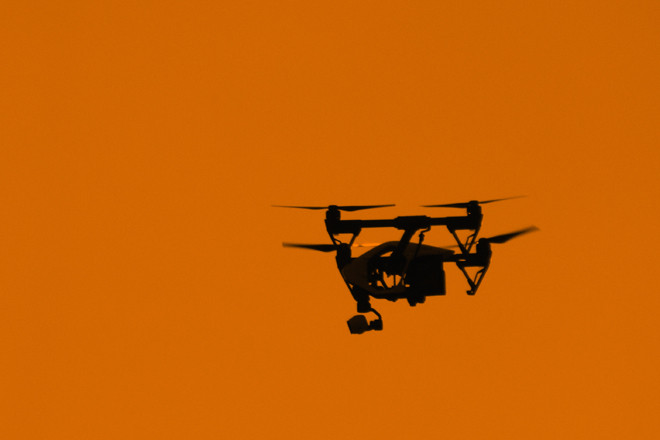Preparing for the Drone Revolution by Micah Goodwin
Arkansas is on the cusp of a drone revolution. Many of our state’s businesses have already begun using drones for agriculture, energy development, advertising, social media and journalism. In fact, economists anticipate drones will become a multi-billion dollar industry by the mid 2020’s, with Arkansas expected to reap millions in economic benefits.
Drone law is still in flux, so it’s important to understand both the current legal framework and where the law is headed. Federal law and the Federal Aviation Administration (FAA) recognize two kinds of drone use by civilians: commercial and recreational. While it is well known that the FAA recently began requiring all recreational drone users to register their drones, it might be surprising to learn it has always been illegal to use drones for “non-recreational operations” without obtaining an exemption from the FAA. Even privately-owned hobby drones used incidentally for commercial activities require FAA approval, which means every drone user receiving a financial benefit from their drone—including pipeline inspectors, farmers, wedding photographers and realtors—must navigate the commercial exemption process or risk enforcement.
In 2014, the FAA began allowing commercial drone operations by granting exemptions under Section 333 of the FAA Modernization and Reform Act of 2012. The key to obtaining this exemption lies in careful planning. The FAA’s clear goal in regulating drone use is public safety, so applicants need to stress safety measures in their plans. Commercial users must not only obtain an exemption, they also have to avoid no-fly zones, maintain flight manuals, comply with FAA flight rules and use operators who hold a pilot’s license.
The FAA announced it will publish a new commercial drone rule sometime later this year or in 2017, which could change the current framework for commercial drone users. Luckily, the FAA’s final commercial drone rule will probably make it much easier for businesses to use drones on a daily basis. As currently proposed, the rule would allow for blanket approval of commercial drone use when flown under certain conditions—requiring registration, but not a formal exemption. Proposed uses falling outside the blanket parameters would continue to require an FAA exemption.
The FAA recognizes drone uses will only multiply in the future and recently indicated it is willing to approve innovative drone practices that can account for public safety. For example, it approved the first night-time commercial drone operation ever in April 2016, an about-face for the agency, which had previously rejected other proposed night-time operations out-of-hand. So far, the FAA has refused to approve drone delivery systems, but is currently studying the feasibility of autonomous drone flights. Considering that the FAA clearly expects to see new and responsible drone uses by industry, the future looks bright for drones in business.
For those interested in flying a drone for personal use, fear not. Recreational drone flights are given a blanket approval if done under certain conditions in proper airspace. No exemption application is required, but operators must register their drone through the FAA website. The FAA grants blanket approval to recreational flights that are under 400 feet; within visual line-of-sight; away from aircraft; at least five miles away from airports; away from people or stadiums; done in a careful manner (i.e., not reckless or under the influence of drugs or alcohol); and with a registered drone weighing 55 pounds or less.
Even though their drone flights may adhere to FAA standards, operators can still run afoul of other laws. The FAA imposes both permanent and temporary airspace restrictions throughout the country. Arkansas law also creates limitations on drone usage in certain areas in the state. Drones can give rise to legal hurdles in a number of other contexts, notably with respect to personal injury, property damage, privacy, and free speech. When in doubt, use common sense – alarm bells should be ringing if you think your drone flight could endanger or annoy someone.
With drones, a little forward thinking can prevent a lot of headache down the road. Federal and state restrictions on drone use will continue to expand, making regular monitoring of the regulatory landscape crucial to every drone operator.
Micah Goodwin is an attorney with PPGMR Law, a business-oriented law firm with offices in Little Rock and El Dorado. A graduate of the University of Arkansas School of Law, Goodwin served as managing editor of the Arkansas Law Review and president of the Environmental Law Society. For more information, visit ppgmrlaw.com.

